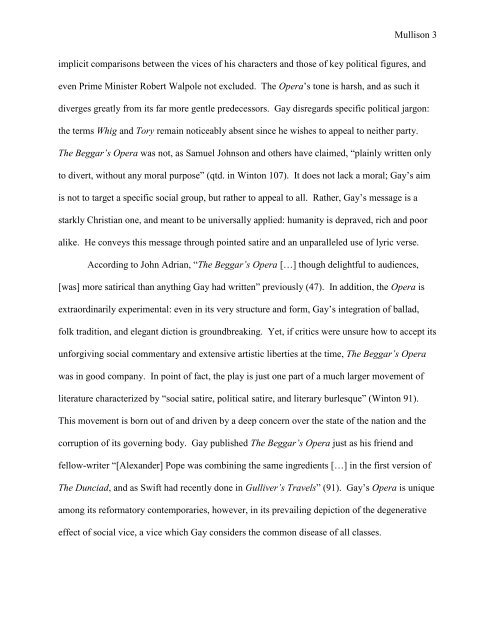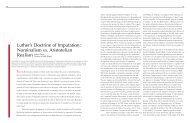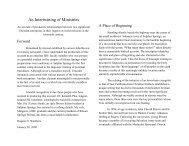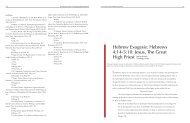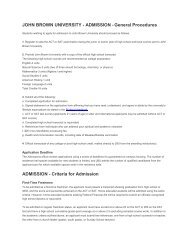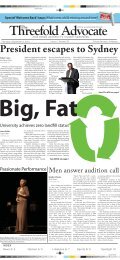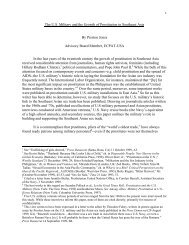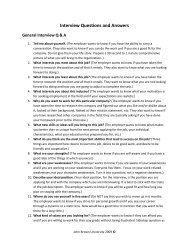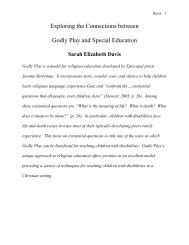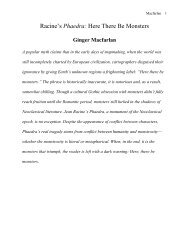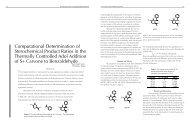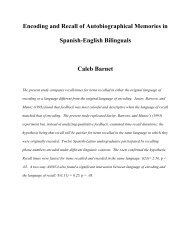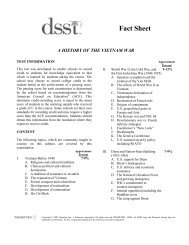Kendra Mullison - John Brown University
Kendra Mullison - John Brown University
Kendra Mullison - John Brown University
Create successful ePaper yourself
Turn your PDF publications into a flip-book with our unique Google optimized e-Paper software.
<strong>Mullison</strong> 3implicit comparisons between the vices of his characters and those of key political figures, andeven Prime Minister Robert Walpole not excluded. The Opera‟s tone is harsh, and as such itdiverges greatly from its far more gentle predecessors. Gay disregards specific political jargon:the terms Whig and Tory remain noticeably absent since he wishes to appeal to neither party.The Beggar’s Opera was not, as Samuel <strong>John</strong>son and others have claimed, “plainly written onlyto divert, without any moral purpose” (qtd. in Winton 107). It does not lack a moral; Gay‟s aimis not to target a specific social group, but rather to appeal to all. Rather, Gay‟s message is astarkly Christian one, and meant to be universally applied: humanity is depraved, rich and pooralike. He conveys this message through pointed satire and an unparalleled use of lyric verse.According to <strong>John</strong> Adrian, “The Beggar’s Opera […] though delightful to audiences,[was] more satirical than anything Gay had written” previously (47). In addition, the Opera isextraordinarily experimental: even in its very structure and form, Gay‟s integration of ballad,folk tradition, and elegant diction is groundbreaking. Yet, if critics were unsure how to accept itsunforgiving social commentary and extensive artistic liberties at the time, The Beggar’s Operawas in good company. In point of fact, the play is just one part of a much larger movement ofliterature characterized by “social satire, political satire, and literary burlesque” (Winton 91).This movement is born out of and driven by a deep concern over the state of the nation and thecorruption of its governing body. Gay published The Beggar’s Opera just as his friend andfellow-writer “[Alexander] Pope was combining the same ingredients […] in the first version ofThe Dunciad, and as Swift had recently done in Gulliver’s Travels” (91). Gay‟s Opera is uniqueamong its reformatory contemporaries, however, in its prevailing depiction of the degenerativeeffect of social vice, a vice which Gay considers the common disease of all classes.


